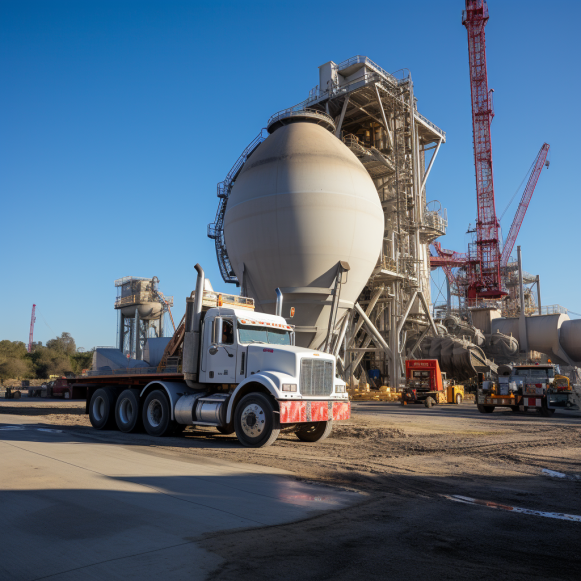Cupertino quarry won’t restart cement production after entering into legal agreement with Santa Clara County

The cement kiln has been closed since April 2020
Following the company’s legally binding agreement with Santa Clara County, Lehigh Hanson will have to officially cease cement production at its quarry west of Cupertino.
The Santa Clara County Board of Supervisors unanimously approved the agreement on Tuesday afternoon, bringing the 3,510-acre site one step closer to reclaiming and restoring.
Supervisor Joe Simitian, whose district includes the plant and has long advocated for its closure, referred to the closure as “the end of 84 years of cement manufacturing on the site.”
Since 1939, Lehigh has played a significant role in Bay Area construction projects, but in recent years, residents and environmentalists have pushed for its closure due to pollution emitted by the plant.
Lehigh announced last year that it would not restart cement production after the kiln was decommissioned in April 2020. In April, the board asked the county’s attorneys to formalize the situation and draft an agreement.
The county is one step closer to achieving Simitian’s three goals: closing the plant, halting new quarrying activity, and starting the restoration and reclamation process.
“That means the first and second items on the three-part to-do list will be completed,” Simitian said during the meeting.
Supervisor Otto Lee was “ecstatic” about the agreement, which would prevent “many dangerous and poisonous gasses and emissions.”
“This is an action that has been long overdue to save our public’s health,” Lee said. “And these emissions have caused air and water pollution, such as rainwater runoff, selenium, smog, acid rain, climate change, and have certainly aggravated health conditions like asthma and emphysema, for more than eight decades.”
Over the last decade, Lehigh has received over 2,100 violations and paid millions of dollars in pollution fines. Because it violated the Clean Water Act, the Clean Air Act, California water codes, and other local laws, the company paid $2,550,000 to the Environmental Protection Agency and the Regional Water Quality Control Board in 2015, and it spent $12 million on pollution control technology across 11 plants in eight states in 2020.
According to Lehigh Hanson spokesperson Jeff Sieg, the company is “pleased to formalize our agreement not to restart the kiln at our Permanente cement plant.”
“We remain focused on working collaboratively with the community and other stakeholders on the development of a long-term strategy for the property so that it can continue to provide value in the future,” he said.






